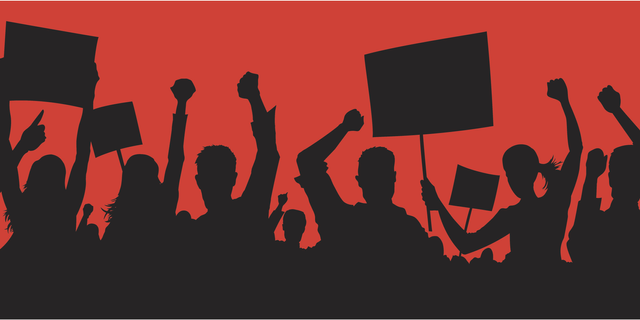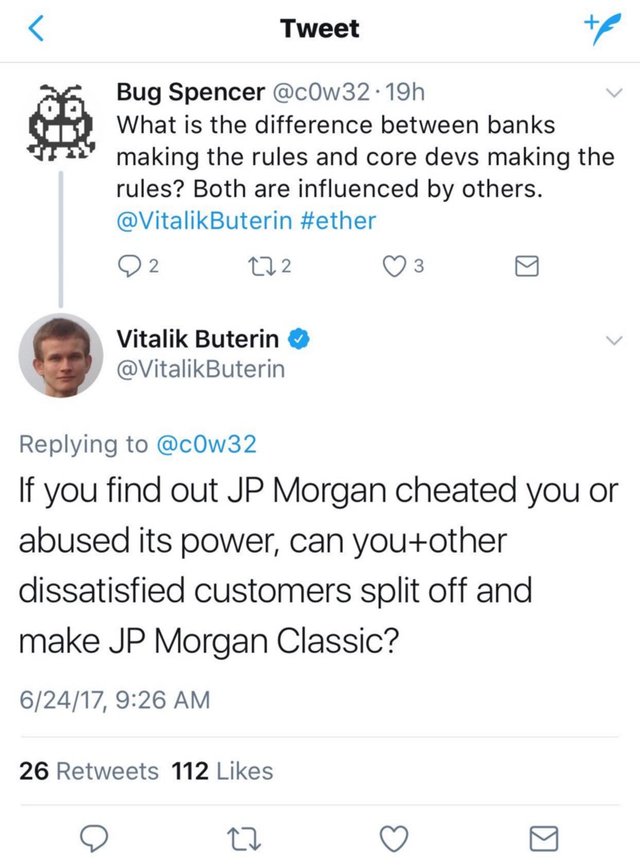Who owns the Blockchain?
How democratic is the decentralization?

Blockchain has taken the world by storm. It feels like the early days of Internet. Every smart person out there is thinking of building X on Blockchain, just like the smart people of 90s were thinking of building X on the Internet.
We saw everything from mails, friends, commerce, and entertainment built on the Internet. Our lives got easier and better, we all agree, but what if I ask you, “Who owns the Internet?”
You’d say, “No one.”
And you’d be right. But only in theory.
“In theory there is no difference between theory and practice. In practice there is.” — Yogi Berra
Yes, no one individual or an organization owns the Internet but whoever owns the majority of the Internet users, controls the Internet. Some companies defined themselves as being the internet itself. Some companies do that still. In theory, the internet is decentralized, and no one owns or controls it. In practice, it doesn’t seem so.
What could be the internet moment for Blockchain?
To understand the problem with Blockchain, we need to understand the assumptions on top of which it is built. There’s only one —
The majority of a crowd is always right.
Let me help you understand it by asking you a question, “How do you tell what a crowd wants?”
Democratically speaking, by listening to what the majority of the crowd wants, we can know what the crowd wants.
Right? Right.
What if the majority wants to loot the rest in the crowd? What if, in a crowd of a hundred people, 51 intends to steal the assets of the rest 49?
Does it feel right? In theory, it does. We could always argue, “Well, that’s what the crowd wants.”
In practice, not so much.
And that’s the problem with Blockchains.
It anyone can gather the 51% of the power in a Blockchain, he can misuse the system in his favor.
Controlling 51% of the power…
“The object of life is not to be on the side of the majority, but to escape finding oneself in the ranks of the insane.” — Marcus Aurelius
What do we mean by owning 51% of the power in the system? The system works when people in the system spends CPU power and electricity to solve mathematical problems. The first one to solve it gets rewarded in the cryptocurrency denominations (coins).
The mathematical problems are such that when solved, it makes sure that the history of transactions cannot be rewritten.
To rewrite the history of transactions happening on the Blockchain needs the culprit to change not only the transaction in the past but also all the transactions after that. While everyone is at work to lengthen the chain, it is practically impossible for one person to rewrite the whole chain.
But what if, the majority of the workers decide to turn dishonest and rewrite the chain in a manner that favors them? The chain gets re-written.
If a group controls the 51% power on the Blockchain, the chain could be rewritten by them.
Should I be afraid?
“I’m not afraid of storms, for I’m learning how to sail my ship.” — Louisa May Alcott
Imagine a country (a hypothetical one) that can manufacture hardware cheaper as compared to the rest of the world and gets subsidized electricity. In such a scenario, a lot more citizens of the country will join the network to get the rewards.
Who gets the reward? Whoever solves the mathematical problem first. Who solves the mathematical problem first? Whoever has higher computation power.
Because of these equations, there would be (or is it already?) a situation where the majority of the workers on the Blockchain would be present in that particular country.
One fine day, you would wake up and check your cryptocurrency wallet to realize that it is entirely empty. You’d try to figure out where has your balance gone but after digging up transactions in the blockchain you’d realize that you had never acquired the balance in the first place. Everything you owned in the wallet has just vanished, overnight. POOF!
What could have happened? Perhaps, the country that controlled the majority of the computing power aligned themselves together and rewrote the entire Blockchain in such a manner that they now own every single coin that was in circulation.
It is just one of the many scenarios that could arise. It illustrated how the workers from the same country could align themselves to be dishonest. What if people formed groups based on color, gender, and religions.
Should you be scared? You must be. That means you’re not stupid.
How do we fix it?
“There are no problems we cannot solve together, and very few that we can solve by ourselves.” — Lyndon B. Johnson
There are several schools of thought that propose solutions to the problem. One of the major ones intends not to base the power of system on the computation power at all. It’s called, “Proof of Stake,” where workers, instead of solving mathematical problems, bet their acquired stakes (coins) on their proposed solution.
If the majority agrees, the worker gets rewarded. If the majority disagrees, the amount that he placed as bet gets debited from his wallet. It introduces the concept of penalties in the system that it lacked earlier.
But that doesn’t fix the problem entirely. Yes, now the dishonest could be penalized, but the concept will introduce the issue of ‘rich get richer, and the poor get poorer.’ If I win a bet, I get rewarded, therefore, allowing me to put a bet of a larger amount, therefore, winning it again, therefore allowing me to put a bet of an even larger amount, therefore and so forth. The cycle goes on.
Eventually, all the wealth (coins) on the Blockchain will accumulate with a small number of individuals. If these people decide to rewrite the Blockchain, they can.
In any situation, if a small majority controls the Blockchain, the larger minority is at risk.
I came across this Twitter conversation including Vitalik himself:

His point is, if there are many dissatisfied users on a Blockchain, it is possible for them to split off and manage their fork of the Blockchain, just like what Ethereum Classic did with Ethereum.
Although not entirely practical, he has a point though.
Is that the best we can do?
“Progress is man’s ability to complicate simplicity.” — Thor Heyerdahl
I think we can do better. We always can. In this particular case, what if, we make it easy and straightforward for everyone to be a part of the network.
I don’t believe the solution to the problem lies in the technology alone. Rather, how we form groups and communities in our lives. More diverse a Blockchain network would be, the safer it would be.
Getting everyone, even our mothers, and grandmothers, on the network is essential. I immensely believe in the future that decentralization holds, and I am significantly excited about making the decentralization diversified.
Wow nice post. Keep em coming. will folloy you for more in the future :)